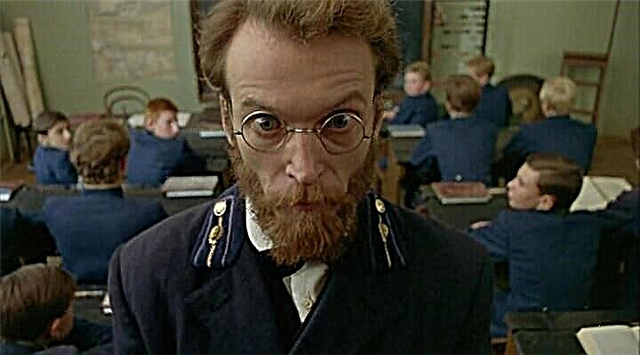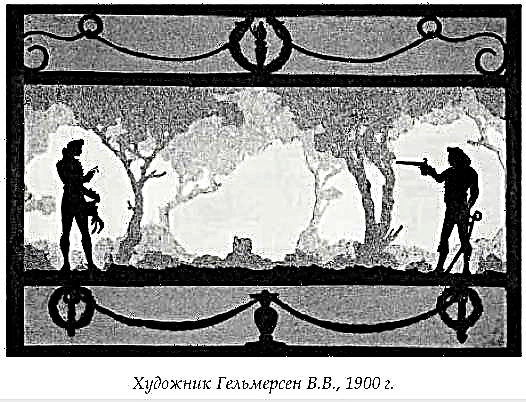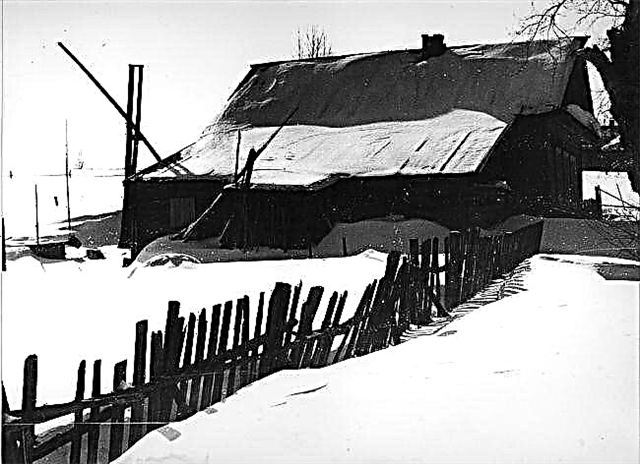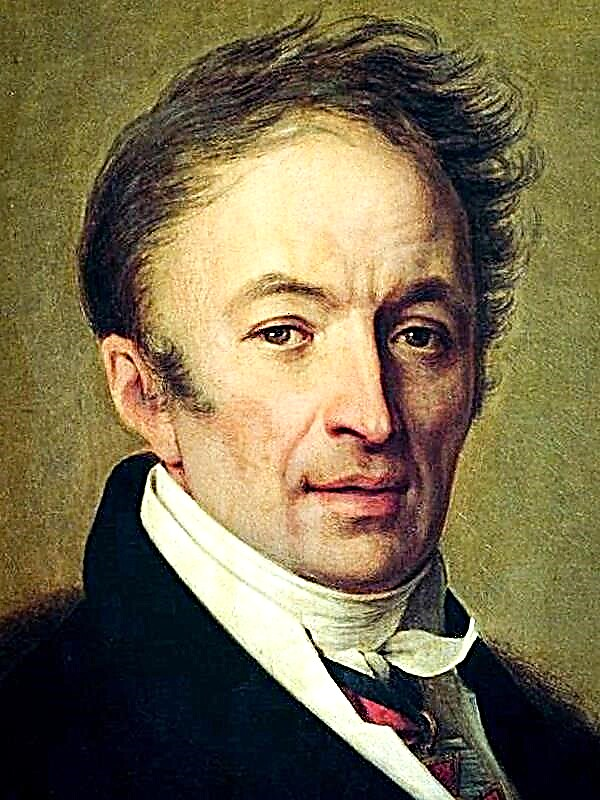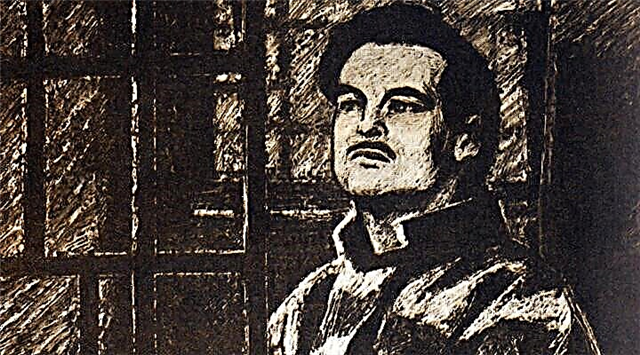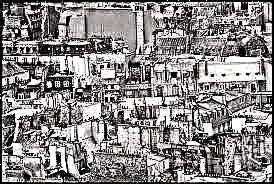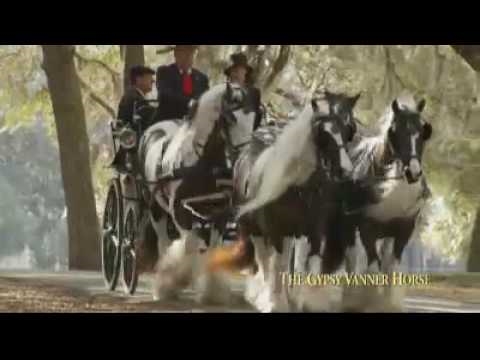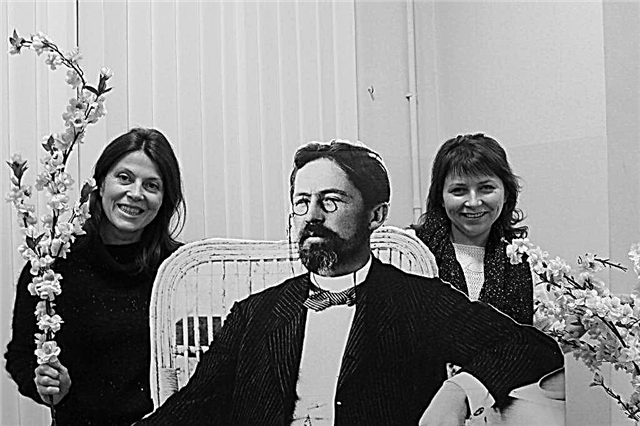Poetry of the 20th century is a special literary space. The poets of that time experienced very serious problems, they were haunted by all kinds of troubles: a change of power, war and repression. Many of them surrendered under the yoke of the government, published under the most severe censorship, but only Anna Andreevna Akhmatova. She perceived all difficulties philosophically - as tests of the strength of her spirit. The poetess boldly expressed the feelings of the common people, spoke instead of them, in their voice. Philosophical lyrics occupies a significant place in the work of the author, one of such poems is “Night”.
History of creation
The poem "At Night" was released in 1918. This year has become very difficult for the poetess in many ways. Firstly, the memories of the bloody revolution of 1917 are still very fresh. Secondly, August 1918 was marked by a rather complicated divorce from Gumilyov. These emotions served as a kind of impetus to the writing of this lyrical work.
It was especially bad for the author’s soul when numerous mutual betrayals led to a stormy clarification of relations in the family. The son remained on the side of the father, and this fact also touched the heart of the mother. Therefore, we see in the text of the poem the motives of hopelessness that accompanies family life. That fidelity, that betrayal is all the same, because at night no one has peace and happiness. Probably the night is the state of mind of the poetess, for the haze fell on her native land, and there was no visible end and edge of this darkness, where many people lost themselves.
Genre, direction and size
The poem “At Night” is a vivid example of philosophical lyrics, poetry, aimed at thinking about the essence and nature of any feelings, phenomena or events. The direction in which the great poetess worked was acmeism. Although there is a high imagery in the poem, the language is simple and understandable. The main thing for Akhmatova is to convey meaning, and not to clothe it in a beautiful form.
Her poetry is close to every person, because everything in Akhmatova’s poems is concise and very understandable, exactly the same experiences are close to people, they all could experience similar experiences. The ease of form is emphasized by the size of the poem - iambic. The dynamism, which is motivated by size, creates an image of a real and rapidly developing life. The feeling of a frozen poetic world disappears.
Images and Symbols
The system of images in the poem is quite large. Already in the first quatrain we see the image of the inhabitant of the night - a gloomy sentry. The “inhabitants” of the poem are chosen so as to create an atmosphere of some fear, mystery, even a sense of deception. Together with the sentry, the poetic space is filled with an unfaithful and faithful wife. These images work to reveal the central image of the poem - the night, its mysterious world. She hides all the tricks of people, their anxieties and vices, and therefore people themselves are afraid of her, guard their secrets. And only the poetess in the twilight veil seeks only fresh air and peace: she is stuffy in the house. Stuffiness conveys a mood of fatigue.
This world is the only thing that unites the heroes, they have practically nothing in common, only the scene. At the end of the poem, we find a fairly pronounced image of the lyrical heroine, sad, devastated, tired. She is not interested in anything, she just goes out to look at the kingdom of night nature, inspiring and frightening. The fresh air of dusk conveys an atmosphere of freedom.
Themes and mood
The mood of the whole poem is conveyed through the emotions of the lyrical heroine - thoughtfulness, fatigue and a certain sadness. Thought is directly related to the thirst for inspiration, and sadness, as you might assume, with the recent divorce, which is why the lyrical heroine had to move away from the world, start looking for a new meaning in life. Fatigue is due to the fact that she finally revealed all her cards, she does not need to worry, as a faithful wife, and sneak home in the night, as an unfaithful wife. She is generally no longer a wife, she’s tired of clarifying relationships, and now she is looking for herself in freedom and creativity. In this work, the theme of separation and fading of passion manifests itself in this way.
The poetess writes that she will be able to “touch the lyre” precisely at night, mysterious and fabulous. Thus, the theme of creativity is raised. Liberation from the stuffiness of space gives her an incentive to create. Thus, the author probably hints that the disappearance of the bonds of marriage contributes to a new creative impulse.
This poem is a pantry of philosophical themes and thoughts. It also contains the theme of understanding life, the theme of the extinction of life, the theme of world outlook (through which emotion people perceive the world). It is also impossible to ignore the theme of poetic gift, which willfully seeks rest in order to make itself felt.
Idea
The main idea of the poem is a reflection of a turning point in the life of the author and his observations, which have become a kind of intermediate result. Leaving home, the heroine leaves the comfort zone (family) and moves into the unknown - night.
For some, she is scary and unpredictable, that something needs to be hidden and protected from her in the night guard, for someone she is secretive and anxious, hides secrets (infidelity) and kindles anxieties (for a faithful wife). And for someone, night is a unique time for creativity, a breath of fresh air after a series of trials. Everyone finds something in the unknown, their own meaning, but everyone goes there with fear and uncertainty. That’s the way, the author thinks, the main thing is to dare to look into the eyes of the impenetrable darkness of your own soul and find your own path in it.
Means of artistic expression
This poem abounds in expressive means. From the first line we see figurative epithets - “a month a little alive” - emphasizes the vulnerability of the night, its inconstancy, a certain weakness. “Flowing clouds” is an epithet that again indicates the great mobility of the night world, that even large clouds do not stand still, but are in constant motion, as if for a moment they stop and leave the firmament. “Everlasting anxiety” is an excellent figurative use of the adjective, which leads us to the idea that night gives rise to anxiety, which, alas, will not disappear with the arrival of morning.
The phrase “touch the lyre” is permeated with high imagery. It is clear that Akhmatova speaks of poetic talent, and it seems that creativity is a kind of matter that everyone wants to touch. “Tight hugs of sleep” is an amazingly figurative metaphor. Despite the vulnerability of the night, its inconstancy, the poet notices that the spells and magic of the night are strong enough, she cannot leave anyone indifferent.

